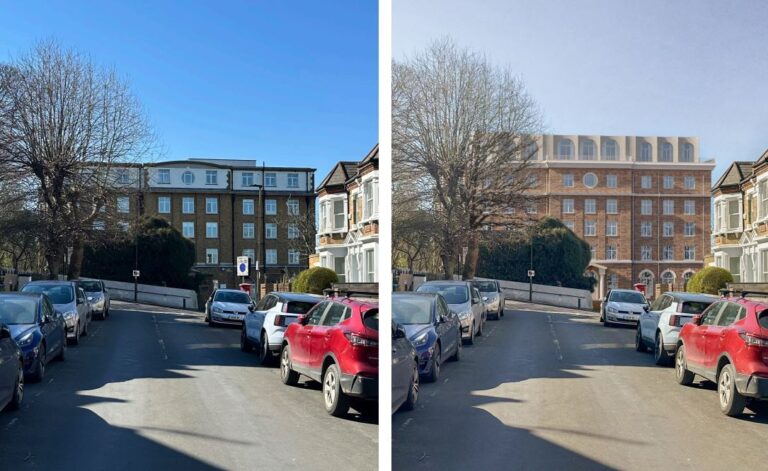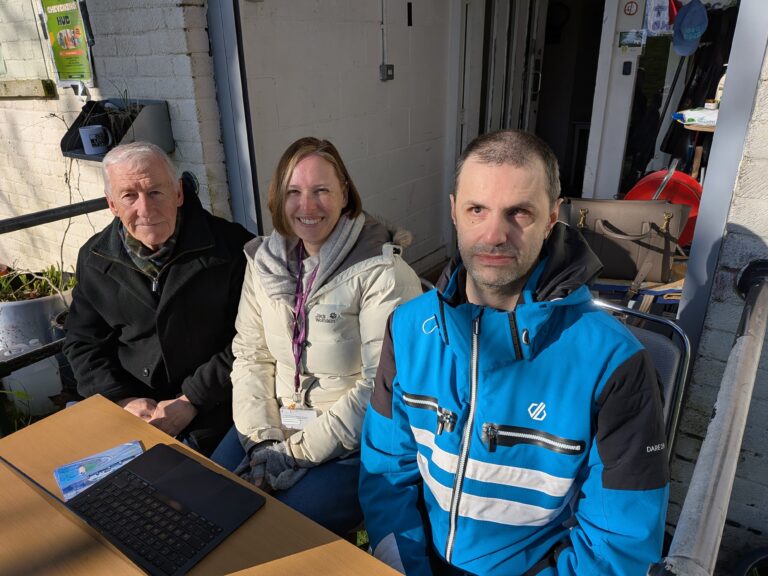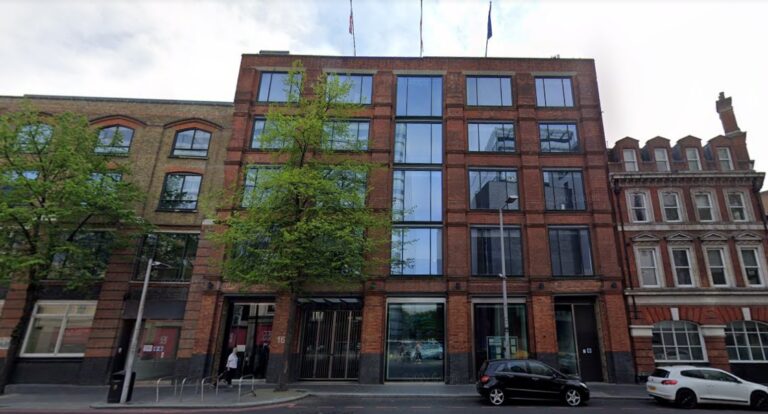West London houseboat owners have said they are “thrilled” after the local council backed their fight against the introduction of ‘apartment boats’ to the waterways in one of the city’s richest areas. However they warned they have “won the battle, we haven’t won the war”. Residents living aboard the eclectic line-up of homes along Chelsea Reach have been engaged in a seven-year battle with the owners of the site, claiming the value of their assets, and the idyllic community they belong to, are under threat.
A neighbourhood of houseboat owners has existed off Cheyne Walk, to the west of Battersea Bridge, since the 1930s. Penelope Fitzgerald’s Booker Prize-winning novel Offshore was inspired by the years she spent residing aboard a barge in the area, and Damien Hirst lived there for a time.
Former Bloomsbury Publishing Editor-in-Chief, Alexandra Pringle, 70, and her husband Rick Stroud, 75, a writer and TV and film director, are among those who call Chelsea Reach home. Mr Stroud bought a houseboat 30 years ago, after his first wife had suffered a severe brain injury while riding. The incident left her semicomatose for more than 20 years before she sadly died, and was the driving force behind his purchase. He and Ms Pringle have lived together aboard the boat, which they joint-own, for 25 years.
Describing life on the water as “magical” for his mental health and wellbeing, Mr Stroud said things felt secure for himself and other boat owners, until after the Chelsea Yacht and Boat Company (CYBC) was purchased by new owners in 2016. According to several houseboat owners the Local Democracy Reporting Service (LDRS) spoke to, things changed after the new owners came in. Costs such as maintenance fees began to rise, though it was hiked charges for new licences which eventually led to legal action. And the introduction of huge ‘apartment boats’ housing two families each sparked a council planning meeting as other owners sought to protect the character of the reach.
Before the issue of the apartment boats, owners faced what they claim to be an existential threat to their lifestyle on the water in hiked licences to moor there. Mr Stroud was hit with a bill of £500,000 for a new 10-year licence, far beyond the £30,000 he and Ms Pringle paid last time. After legal action, that was reduced to £50,000 and their current licence backdated so they have five years left to run on it. But they still face a much higher bill when it comes time to renew.
Unless they can purchase another, they say they are looking at the value of their home decreasing substantially due to the lost mooring, affecting their financial stability into retirement. Ms Pringle said: “We’re literally looking at no future. Because we have no capacity to buy another place in London, anywhere. We’d have £100,000 to buy. The only resource we have is my pension fund, which will be taking money out of my pension. It’s that bad.”
Roddy Mullin, 78, who lives in a separate houseboat with his wife Pam Mullin, 75, said the couple are facing the same potential fate: “We have nothing, we can’t sell the thing, we reckon our boat’s about £75,000. So that’s all we will have. And we will then have to pay for the movement. And we would have to find a place where you can get a berth and whatever their licences [are]. We just haven’t got the money.”
A spokesperson for CYBC said the company disagrees with the Expert Determination – a ruling that led to the reduced fees – and that its independent surveyors looked at the value of boats sold with a licence of less than a year in Chelsea and along the river, and compared it with the value of boats sold with a longer mooring licence, of five or 10 years.
“The clear conclusion was that vessels with a mooring licence of five-plus years in Chelsea sold for several hundreds of thousands of pounds above the value of the vessel alone,” they said. “A typical houseboat, without a secure mooring, might be valued at around £80,000 on the open market. However, with a ten-year mooring licence in Chelsea, that value immediately increases to around £800,000. There is clear evidence of sales on the moorings themselves to support CYBC’s valuation. The expert determination process materially undervalued the licences by 90%.”
But it was the appearance of three ‘apartment boats’ earlier this year that has caused the most recent concerns, and was the focus of a Kensington and Chelsea Council planning meeting. With two separate properties on each of them, the houseboat owners claim they could pave the way for the introduction of larger, more lucrative boats in the place of smaller vessels that have left the reach, some of which were evicted.
A spokesperson for CYBC said only six of the 62 boats in the reach have left in the past two years. Three of the boats owed CYBC significant sums of money; one was deemed unsafe and “was a risk to itself and other boatowners”, and the other two boats’ licences had ended. They added: “Boatowners have only left due to non-payment of fees or termination due to their licence expiring. And in some cases, failure to comply with essential health and safety requirements, like dry-docking.”
Pam Mullin claimed the current ownership of the company, and the recent introduction of the larger boats, has had significant impacts on those residing at Chelsea Reach. She claimed: “The destruction of the community is a major topic in this, because it is destroying a community which has been perfectly happy, and very supportive of each other. When we had Covid in lockdown and things, we cared about our neighbours, and we really looked after them.”
At the Kensington and Chelsea Council planning committee meeting on December 19, all five councillors voted against officers’ recommendations and decided a planning breach had occurred as a result of the mooring of the three ‘apartment boats’. Officers will now assess the potential harm of such a breach, before the committee votes at a later date whether enforcement action is to be taken.
Cllr Cem Kemahli, Lead Member for Planning and Public Realm, who called in the item to the committee, said during the meeting: “Our beautiful, quintessential riverside in Chelsea is part of London’s iconic fabric. A significant number of residents are of one voice, that they believe that the size and design of these houseboats is going against this character. We as elected members of the council are here to stand up and support that voice.”
A spokesperson for CYBC told the LDRS the council’s own planning and legal team had confirmed no breach had occurred, and that councillors took a “political decision, which does not reflect the reality that no planning breaches have occurred. The company will defend its legal rights”.
A Section 70 Notice from the Port of London Authority (PLA), from which CYBC leases Chelsea Reach, was also published as an accompanying document ahead of the meeting. In it, the authority lists nine breaches of the licence between CYBC and the PLA, including mooring houseboats across two berths, which it wrote are required to be remedied. A spokesperson for CYBC said the company has responded “in full” to the PLA.
Ms Pringle said that while she is “thrilled” at the update from the council meeting, reservations remain as to the future of the houseboats. Ms Mullin added the decision “felt like somebody actually cared,” adding: “There was a little bit of hope.”
Cllr Ben Coleman, Deputy Leader of neighbouring Hammersmith and Fulham Council and the Labour parliamentary candidate for Chelsea and Fulham, who residents say has been supporting their case, said: “I thought it was a very helpful, long-overdue first step by the council, but it ain’t over until the fat lady sings. Until the council actually takes enforcement action, I think people will continue to be nervous and frightened, and so we’re looking to see they do that. I’ll be pressing them further to make sure that that happens.”








